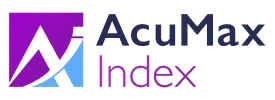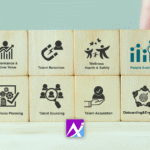Interviews can be a great tool to help ensure you’re hiring the right candidate, but you’ll only get as much from them as you put into them. To conduct an informative job interview, you must do the legwork in advance to create a structure and interview environment that will enable you to get informative results. Interviews are short, and they don’t give you much time to get to know a stranger and assess whether they’re the right fit for your job. By coming prepared with the candidate put at ease and your interview questions being specifically prepped for the candidate, you will be able to have an effective and informative job interview.
What you need to come prepared
You should have well-researched the candidate going into the interview. Familiarize yourself not only with the candidate’s resume but any testing you’ve done to analyze a candidate. Understanding how a candidate is wired and how their assessment says they will perform in a role allows you to see their potential weakness. Ask specific and probing questions about those areas of weakness identified by the assessment. Using assessments will help you know these areas with data, instead of asking a candidate to self-identify their perceived areas of opportunity.
If you don’t know your candidate’s assessment results, you should still ask detailed questions but you might need to try to take a broader approach because you won’t know precisely where the future issues might be. You can ask a candidate to describe a challenging work situation and how they resolved it, or discuss details of a current work problem your team is tackling and ask the candidate how they would approach the problem.
However, if you have assessment results, you can better dig into areas that are more likely to represent future challenges. For example, let’s say you have a job where about 40% of the duties are routine tasks and those tasks have to be performed sequentially. If a candidate’s assessment profile shows that this work style is something that they would naturally excel at you could focus the interview time on discussing other aspects of the role or to ask more background questions. However, if your candidate’s assessment shows that they need challenging and stimulating tasks and do not do well with overly routine, sequential, or slow-paced environments, you would really want to focus the bulk of your attention on that. Discuss which elements of the role are better suited to their wiring and ask about how they can balance that with the tasks that are also a part of the role but that they might not like as much. In other words, it allows you to spend your time focusing on the areas of the role that will be the biggest challenge for your candidates and not waste as much time going over the things that their wiring shows where they will naturally excel.
Think about the future
Think about whether this candidate is a good fit for your organization a year from now, and beyond. Don’t just focus on what they can do for the organization tomorrow in their role. The hope is that this person will continue to grow and move up within the organization as they excel. As such, don’t only focus on the immediate job at hand. Identify how the role may grow or change as the company does.
Define what would help make a candidate succeed or be a good candidate for career growth within the company. This will help you figure out what questions to ask to learn whether they would continue to be a fit for what the company will look like in the next few years. If you know that you have jobs that are likely to open up or management roles that you will need to be filled, put together a position profile. This will help you know the kind of person who has the wiring that will make them the most likely to succeed in that role and will allow you to analyze your current candidate pool’s wiring against both your current and future position profiles.
Put candidates at ease
Interviews are nerve-wracking and can make even the best candidates mess up or not put their best foot forward simply because of how nervous they are. While you cannot eliminate interview jitters entirely, you can help candidates by being transparent about the interview process. Tell candidates as much as you can prior to the interview. Let candidates know who they will be speaking with, and what role they have in the organization. If you know that there will be multiple steps in the interview process, share that with candidates so they know the next steps.
Let candidates know about any dress codes the organization has so they don’t have to guess the best interview attire. If you have standard topics or examples of topics that you know will be discussed at the interview, share those in advance so they can come prepared. If you have assessments as part of your interview process, let candidates know when they will be expected to take the assessment, and how long it will take. The more you do to let candidates know what to expect throughout the process, the less stressful it will be for them and it will be a more effective and informative job interview for you.





